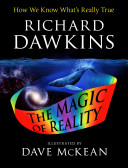Pollyanna VS Sod's Law
It's easy to see that predators (animals that kill and then eat other animals) are working for the downfall of their prey. But it's also true that prey are working for the downfall of their .fedators. They work hard to escape bei and it they all succeeded the predators would starve to death. The same thing holds between parasites and their hosts. It also holds between members of the same species, all of whom are actually or potentially competing with on another. If the living is easy, natural selection will favour the evolution of improvements in enemies, whether predators, prey, parasites, hosts or competitors: improvements that wilvill make life hard again. Earthquakes and tornadoes art unpleasant and might even be called enemies. but they are not out to get you' in the same 'Sod's Law' kind of way that predators and parasites are.
liis has consequences for the sort t of mental attitude that any wild animal, such as an antelope, might be expected to have. If you are an antelope and you see the long grass ri tling, it could be just the wind. Ihat's nothing to worry about, for the wind is not out to get you: it is completely indifferent to antelopes and their well-being. But that rustle in the long grass could be a stalking leopard, and a leopard is most definitely out to get you: you taste good to a leopard and natural selection favoured ancestral leopards that were good at catching antelopes. So antelopes and rabbits and minnows, and most other animals, have to be constantly on the alert. The world is full of dangerous predators and it is safest to assume that sometl a bit like Sod's Law is true. Let's put that in in the nguage of Charles Darwin, the languagige e of natural selection: those individual animals tha act as though Sod's Law were true are more likely to survive and reproduce than those individual animals that follow Pollyanna's Law.
Our ancestors spent much of their time in mortal danger from lions and crocodiles, pythons and sabretooths. So it probably made sense for each person to take a suspicious - some might even say paranoid - view of the world, > to see a likely threat in every rustle of the grass. every snap of a twig, and to assume that something was out to get him, a deliberate agent scheming to kill him. 'Scheming' is the wrong way to look at it if you think of it as deliberate plotting, but it is easy to put the idea into the language of natural selection: 'There are enemies out there, shaped by natural selection to behave as though they were scheming to kill me. The world is not neutral and indifferent to my welfare. The world is out to get me. Sod's Law may or may not be true, but behaving as if it is true is safer than behaving as Pollyanna's Law is true.'
Notes:
Evolution favors the paranoid mind.
Folksonomies: evolution natural selection law pollyanna sod
Taxonomies:
/pets/reptiles (0.657068)
/society/welfare (0.447436)
/pets/birds (0.428954)
Keywords:
natural selection (0.918928 (positive:0.491495)), Pollyanna VS Sod (0.754176 (negative:-0.256848)), long grass (0.663173 (positive:0.258383)), grass ri tling (0.641486 (positive:0.258383)), predators (0.605177 (negative:-0.164508)), individual animals (0.604589 (positive:0.268394)), paranoid mind (0.564442 (negative:-0.256848)), dangerous predators (0.562580 (positive:0.292513)), Law Evolution (0.546395 (negative:-0.256848)), wild animal (0.536542 (negative:-0.544642)), mental attitude (0.536299 (negative:-0.544642)), ancestral leopards (0.535147 (positive:0.681384)), deliberate agent (0.532814 (negative:-0.729410)), deliberate plotting (0.532304 (negative:-0.394402)), mortal danger (0.527915 (negative:-0.486379)), Charles Darwin (0.527430 (neutral:0.000000)), likely threat (0.524799 (negative:-0.589657)), wrong way (0.518406 (negative:-0.394402)), antelopes (0.514966 (positive:0.412672)), prey (0.512186 (negative:-0.374157)), world (0.503857 (negative:-0.325879)), parasites (0.498505 (negative:-0.306022)), rustle (0.479951 (negative:-0.589657)), downfall (0.478173 (negative:-0.374157)), enemies (0.455426 (positive:0.216473)), hosts (0.454937 (neutral:0.000000)), antelope (0.454274 (positive:0.258383)), improvements (0.452766 (positive:0.433706)), wind (0.451909 (negative:-0.455507)), minnows (0.435124 (negative:-0.268712))
Entities:
Sod:Person (0.952707 (positive:0.101353)), Pollyanna:Person (0.720343 (positive:0.205009)), Earthquakes:NaturalDisaster (0.389683 (negative:-0.803212)), Charles Darwin:Person (0.357349 (neutral:0.000000)), stalking:Crime (0.355977 (neutral:0.000000)), Ihat:Person (0.335079 (negative:-0.492281))
Concepts:
Charles Darwin (0.955058): dbpedia | freebase | opencyc | yago
Natural selection (0.904023): dbpedia | freebase
Lion (0.808896): dbpedia | freebase | opencyc
Evolution (0.793574): dbpedia | freebase | opencyc
Symbiosis (0.565445): dbpedia | freebase
Ecology (0.560304): dbpedia | freebase | opencyc
Impala (0.531561): dbpedia | freebase
Wind (0.529678): dbpedia | freebase





